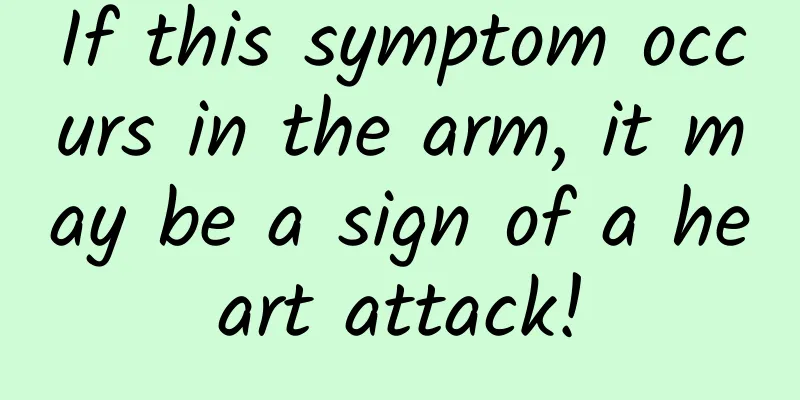What to do if menstruation is not coming due to polycystic ovary syndrome

|
Some people may not be very familiar with polycystic ovary syndrome. In addition to causing female infertility, this disease also has three other main characteristics: amenorrhea, hirsutism, and obesity. The originally regular menstruation stops due to the presence of PCOS, which must make women very panic. So, what should I do if I don’t have my period due to PCOS? Let’s look at the solution below. 1. Weight loss method: This method focuses on increasing exercise to reduce weight, due to endocrine and metabolic disorders caused by obesity. Then losing weight can effectively restore your endocrine system to normal. In this way, once ovulation becomes normal, the chance of pregnancy will greatly increase, and polycystic ovary will gradually disappear. 2. Insulin resistance method: Reducing insulin resistance can increase SHBG, causing the androgen level to decrease, which can effectively solve the phenomenon of polycystic ovary and infertility caused by excessive androgen. 3. Clomiphene drug therapy: It competes with endogenous estrogen receptors at the hypothalamus-pituitary level, inhibits estrogen negative feedback, increases the pulse frequency of GnRH secretion, and thus adjusts the secretion ratio of LH and FSH. This promotes ovulation rate. However, this drug has side effects such as abdominal discomfort, blurred vision, rash, hair loss, etc. 4. Urinary gonadotropin drug therapy: It is mainly used for patients with reduced endogenous pituitary gonadotropin and estrogen secretion. However, this drug has greater side effects than clomiphene and is highly irritating to the ovaries. 5. Gonadotropin-releasing hormone therapy: It can promote the release of FSH and LH from the pituitary gland, but long-term use will make the receptors of pituitary cells insensitive, leading to a decrease in gonadotropin, thereby reducing the synthesis of ovarian sex hormones. 6. Bilateral ovarian wedge resection therapy: Removal of part of the ovaries to eliminate excess androgen produced by the ovaries can correct the regulatory disorder of the hypothalamus-pituitary-ovarian axis, but the location of the resection and the amount of tissue removed are related to the efficacy, and the effectiveness varies. This method has a high recurrence rate after surgery. 7. Chinese medicine conditioning method: This method of treating polycystic ovary is more conservative, but safe and has no side effects. The doctor will prescribe a prescription based on your specific situation. You should insist on taking Chinese medicine and go for a check-up every once in a while to ensure that the doctor can accurately grasp your condition. |
<<: Drinking soy milk for polycystic ovary syndrome
>>: How to do IVF with polycystic ovary
Recommend
How to reduce breast size quickly
Don’t think that only men’s chests grow fat. In f...
Which province is Guilin located in? Why is Guilin called Guilin?
Guilin is a world-famous scenic tourist city and ...
Yellow and sticky vaginal discharge
The appearance of the discharge is yellow and thi...
A hospital friend's secret trick, a must-have for women
1 Estee Lauder's eye cream costs 1,480 yuan, ...
Reasons for bloody vaginal discharge when wearing a ring that female friends should know
For modern women, there are many contraceptive me...
Treat wisdom teeth when it’s time to do it
The full name of wisdom teeth is "wisdom tee...
What is the reason for the small amount of lunar diameter?
Menstruation is something that all women must exp...
What causes breast pain after delayed menstruation?
Women will experience physiological breast pain a...
Can women's belt meridian be cupped?
In recent years, Chinese medicine has become more...
Eat it on an empty stomach in the morning, it is the “king of all supplements”!
We often hear things like: Don't drink milk o...
Can pregnant women use laundry detergent?
The production of laundry detergent requires a la...
Should I choose wire braces or invisible braces? Here is a complete guide to orthodontics!
What is orthodontics? What are the main processes...
Can rapeseed be topped? When is the best time to top rapeseed?
Rapeseed is a major oil crop in my country and is...
What to eat during menopause
Menopause lasts about two to four years, during w...
Why does a woman's urethra hurt?
In real life, more and more diseases are plaguing...








![[Today's Grain in Ear] Midsummer has arrived, with both heat and humidity. Learn some rules to stay healthy](/upload/images/67f1aa9ed89d2.webp)
